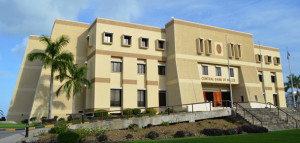- Submit News
- 501-666-6726
- [email protected]

Toledo Community College holds Career Day Expo
January 27, 2016
Second Melchor resident missing in Belize
January 28, 2016Posted: Thursday, January 28, 2016. 10:55 am CST.
Posted: Thursday, January 28th, 2016. 10:56 a.m. CST
 By BMG Staff: For much of the past year there has been much talk of corresponding ties and ‘de-risking’, however, the problem is that many Belizeans don’t understand the situation and as a result don’t feel it has any direct impact on their daily lives.
By BMG Staff: For much of the past year there has been much talk of corresponding ties and ‘de-risking’, however, the problem is that many Belizeans don’t understand the situation and as a result don’t feel it has any direct impact on their daily lives.
Of course, it absolutely does impact the lives of every Belizean citizen. An even bigger problem, as it relates to this issue, is that many of the people discussing it, including media personnel and politicians, don’t have a clear understanding of the problem themselves.
So to put a rather complex problem in a nutshell: large countries like the United States and others have put strict anti-money laundering (AML) and counter terrorism financing (CTF) laws in place that make it difficult for large banks in those countries to do business. Those banks, (think Bank of America, Commerzbank), are governed by those laws and if they are found in violation of any AML/CTF law, it could potentially cost the bank hundreds of millions in penalties.
As a result, these banks (considered Tier 1 banks) have decided to end corresponding services with banks in smaller jurisdictions like Belize because the profit they make from providing wiring, bank drafts and credit card services is much less than what any penalty fee would cost.
The banks are deciding that cutting corresponding services with smaller countries eliminates the risk of facing such penalties, hence the term ‘de-risking’. The problem is that Belize, and others in the region have implemented stringent AML/CTF laws to meet international standards, leaving many puzzled as to why de-risking persists.
That’s the basis of the problem, but why does it affect the average citizen? Well, if all corresponding services to the country were to stop, no Belizean would be able to receive or send money to relatives abroad; businesses wouldn’t be able to do transactions with foreign companies, meaning many goods and services could become scarce; credit cards could become obsolete leaving Belizeans traveling abroad with limited options for making international transactions. Scary stuff, but it’s not at that point, at least not yet. But it is a very real possibility.
Prime Minister Dean Barrow and Central Bank Governor Glenford Ysaguirre understand the urgency and have arranged for meetings with US counterparts including the US Treasury, which has a vested interest in ensuring the US continues business with countries like Belize. One would think that with the US federal government becoming involved it would be a simple procedure to rectify the problems, right? Wrong.
One of the problems is that the financial institutions currently de-risking are privately owned entities and the US government cannot dictate how these companies are run. So, as it currently stands, options are limited, but because the problem is not unique to Belize, and is affecting much of the Latin American and Caribbean region, there is hope that some solution should be on the horizon because certainly the US will not want to lose out on doing continued business with all those countries.
Many people in the affected jurisdictions view the whole de-risking process as unfair and with just cause. In Belize’s case, every financial institution operating in the country is compliant with AML/CTF laws and are also compliant with the Foreign Accounts Tax Compliance Act (FATCA), introduced by the US in 2014.
In its inception countries were given two choices. The first was an inter-governmental agreement or the second option was to have each individual financial institution that operates in a particular jurisdiction sign on with the US Internal Revenue Service (IRS) to make reports at their request.
Belize opted for the second model and as a result, all financial institutions in Belize are listed as FACTA-compliant and are able to do business with the US without trouble. At least on paper.
Still, countries like Belize and others in the region are continuously considered as tax and laundering havens despite the many legislative efforts undertaken in these countries to improve AML/CTF standards. For now, Belize, like all the other affected countries, can only sit tight and hope for the best because if not, things would get extremely difficult. Let’s not even consider those possibilities, let’s just hope that the best is yet to come indeed.
Advertise with the mоѕt vіѕіtеd nеwѕ ѕіtе іn Belize ~ We offer fully customizable and flexible digital marketing packages. Your content is delivered instantly to thousands of users in Belize and abroad! Contact us at mаrkеtіng@brеаkіngbеlіzеnеwѕ.соm or call us at 501-612-0315.
© 2016, BreakingBelizeNews.com. Content is copyrighted and requires written permission for reprinting in online or print media. Theft of content without permission/payment is punishable by law.



































































Comments